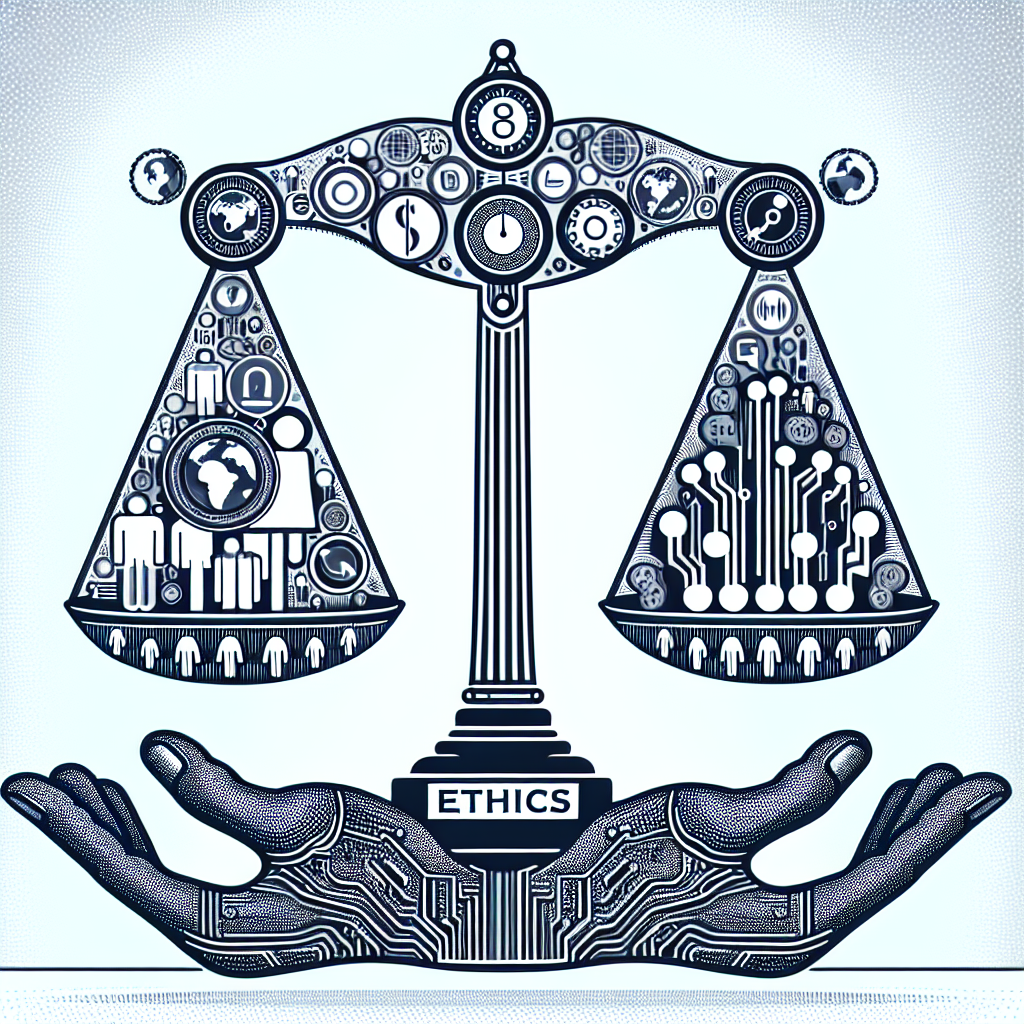In recent years, the development of artificial intelligence (AI) has accelerated at a rapid pace, with companies across various industries investing heavily in AI technologies to improve efficiency, lower costs, and enhance customer experiences. However, as AI becomes more prevalent in our daily lives, questions about the ethics of outsourcing AI development have come to the forefront.
Outsourcing AI development involves hiring external companies or individuals to create AI algorithms, software, or applications. This practice has become increasingly common as companies seek to leverage the expertise and resources of third-party developers to accelerate AI projects. However, outsourcing AI development raises a number of ethical considerations that must be carefully considered.
One of the primary ethical concerns surrounding outsourcing AI development is the potential for bias in AI algorithms. AI systems are only as good as the data they are trained on, and if the data used to train these systems is biased or incomplete, the resulting AI algorithms can perpetuate and even amplify discrimination and inequality. When companies outsource AI development to third-party developers, they may not have full visibility or control over the data used to train AI systems, which can lead to biased outcomes.
Another ethical consideration is the impact of outsourcing AI development on local economies and job markets. By outsourcing AI development to countries with lower labor costs, companies may be contributing to the displacement of local workers and the erosion of job opportunities in their own communities. This can have far-reaching social and economic consequences, particularly in regions where AI development is a major industry.
Additionally, outsourcing AI development can raise concerns about intellectual property rights and data security. When companies entrust external developers with sensitive data and proprietary algorithms, they run the risk of that information falling into the wrong hands or being used for malicious purposes. Ensuring that proper safeguards are in place to protect intellectual property and data security is crucial when outsourcing AI development.
To address these ethical concerns, companies must take a proactive approach to managing their AI development processes. This includes conducting thorough due diligence on potential outsourcing partners, ensuring that data used to train AI systems is diverse and representative, and implementing robust privacy and security measures to safeguard sensitive information.
Furthermore, companies should prioritize transparency and accountability in their AI development practices. This means being open and honest about how AI algorithms are developed and trained, and taking responsibility for any biases or errors that may arise. By fostering a culture of ethical AI development, companies can build trust with their customers and stakeholders and mitigate the risks associated with outsourcing AI development.
In conclusion, the ethics of outsourcing AI development is a complex and multifaceted issue that requires careful consideration and proactive management. By addressing concerns related to bias, economic impact, intellectual property, and data security, companies can ensure that their AI development practices are ethical and responsible. Ultimately, prioritizing ethics in AI development will not only benefit companies and their customers, but also society as a whole.
FAQs:
Q: What are the benefits of outsourcing AI development?
A: Outsourcing AI development can help companies accelerate their AI projects, access specialized expertise, and lower costs. By partnering with external developers, companies can leverage the resources and capabilities of third-party providers to bring AI solutions to market faster and more efficiently.
Q: How can companies ensure ethical AI development when outsourcing?
A: Companies can ensure ethical AI development when outsourcing by conducting thorough due diligence on potential partners, ensuring that data used to train AI systems is diverse and representative, implementing robust privacy and security measures, and prioritizing transparency and accountability in their AI development practices.
Q: What are some examples of ethical issues in AI development?
A: Some examples of ethical issues in AI development include bias in AI algorithms, displacement of local workers due to outsourcing, intellectual property rights and data security concerns, and lack of transparency and accountability in AI development practices. Addressing these issues is crucial to ensuring that AI development is ethical and responsible.

